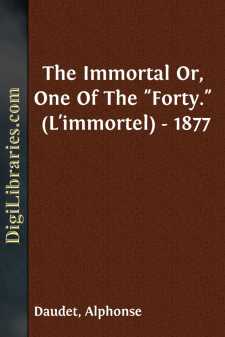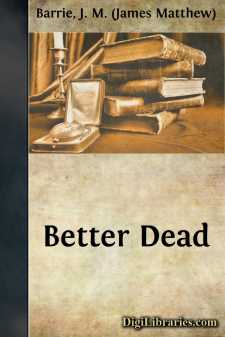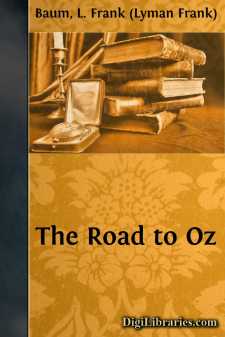Fiction
- Action & Adventure 180
- Biographical 15
- Christian 59
- Classics 6965
- Coming of Age 5
- Contemporary Women 3
- Erotica 8
- Espionage/Intrigue 12
- Fairy Tales, Folklore & Mythology 236
- Family Life 169
- Fantasy 117
- Gay 1
- General 596
- Ghost 32
- Historical 808
- Horror 43
- Humorous 160
- Jewish 25
- Legal 4
- Medical 22
- Mystery & Detective 315
- Political 49
- Psychological 41
- Religious 64
- Romance 159
- Sagas 11
- Science Fiction 730
- Sea Stories 113
- Short Stories (single author) 537
- Sports 10
- Suspense 1
- Technological 8
- Thrillers 2
- Urban Life 31
- Visionary & Metaphysical 1
- War & Military 173
- Westerns 199
Fiction Books
Sort by:
REGINALD BLAKE, FINANCIER AND CAD The advantage of literature over life is that its characters are clearly defined, and act consistently. Nature, always inartistic, takes pleasure in creating the impossible. Reginald Blake was as typical a specimen of the well-bred cad as one could hope to find between Piccadilly Circus and Hyde Park Corner. Vicious without passion, and possessing brain without...
more...
by:
Alphonse Daudet
CHAPTER I. In the 1880 edition of Men of the Day, under the heading Astier-Réhu, may be read the following notice:— Astier, commonly called Astier-Réhu (Pierre Alexandre Léonard), Member of the Académie Française, was born in 1816 at Sauvagnat (Puy-de-Dôme). His parents belonged to the class of small farmers. He displayed from his earliest years a remarkable aptitude for the study of history....
more...
CHAPTER I. “A friend in need is a friend indeed.”—Old Proverb. I have often thought that the biggest bit of good luck (and I was lucky), which befell me on my outset into the world, was that the man I sat next to in the railway carriage was not a rogue. I travelled third class to Liverpool for more than one reason—it was the cheapest way, besides which I did not wish to meet any family...
more...
by:
Ralph Sholto
While Professor Cargill lectured from the rostrum, Neal Pardeau prowled the dark auditorium. This, he knew, was the place to find them. Here was where they whispered and plotted and schemed—feeling safe in this pure, hard core of patriotism. Safe because Cargill was the Director of Education in the New State, just as Pardeau was the Director of Public Security. Safe because Cargill's lectures...
more...
by:
Marietta Holley
PREFACE. Josiah and me got to talkin' it over. He said it wuzn't right to think more of one child than you did of another. And I says, "That is so, Josiah." And he says, "Then, why did you say yesterday, that you loved sweet Cicely better than any of the rest of your thought-children? You said you loved 'em all, and was kinder sorry for the hull on 'em, but you loved her...
more...
INTRODUCTION This is the only American edition of my books produced with my sanction, and I have special reasons for thanking Messrs. Scribner for its publication; they let it be seen, by this edition, what are my books, for I know not how many volumes purporting to be by me, are in circulation in America which are no books of mine. I have seen several of these, bearing such titles as "Two of...
more...
by:
Charles Kingsley
PREFACE A picture of life in the fifth century must needs contain much which will be painful to any reader, and which the young and innocent will do well to leave altogether unread. It has to represent a very hideous, though a very great, age; one of those critical and cardinal eras in the history of the human race, in which virtues and vices manifest themselves side by side—even, at times, in the...
more...
CASE 1. 1. Portrait of Robert Evans. Lent by Canon Evans, Bedworth. Father of G. E., and prototype of Adam Bede. 2. Diaries of Robert Evans (“Adam Bede”). Lent by Mr. Walter P. Evans, Leamington. CASE 2. 3. Portrait of Isaac P. Evans. Lent by Canon Evans, Bedworth. G. E’s brother; original of “Tom Tulliver.” 3a. Another portrait of Isaac P. Evans. Lent by Mr. W. P. Evans, Leamington....
more...
by:
Thomas Hoover
CHAPTERONE He watched from the quarterdeck as the chain fed through the whitecaps of the bay, its staccato clatter muffled, hollow in the midday heat. Then he sensed the anchor grab and felt an uneasy tremor pass along the hull as the links snapped taut against the tide. The cannon were already run in and cooling, but vagrant threads of smoke still traced skyward through the scuttles...
more...
1. The Way to Butterfield "Please, miss," said the shaggy man, "can you tell me the road to Butterfield?" Dorothy looked him over. Yes, he was shaggy, all right, but there was a twinkle in his eye that seemed pleasant. "Oh yes," she replied; "I can tell you. But it isn't this road at all." "No?" "You cross the ten-acre lot, follow the lane to the...
more...











